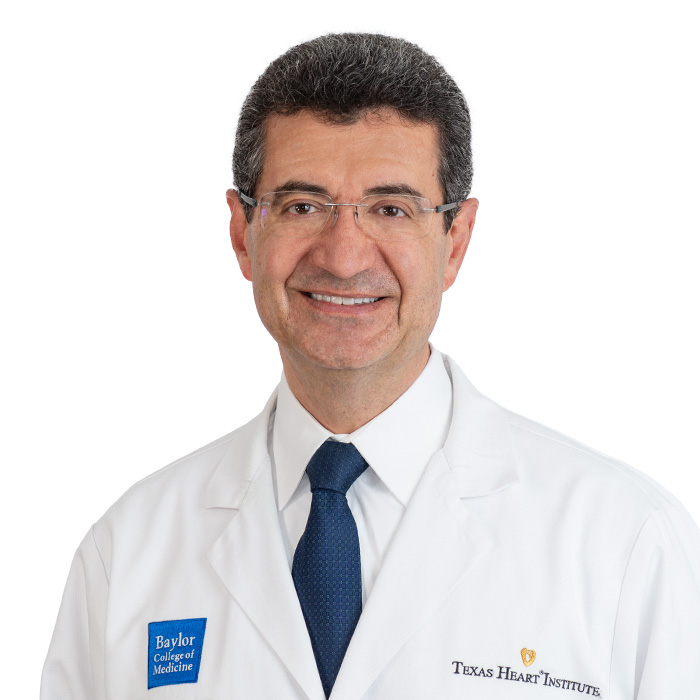
Dr. José G. Díez is board certified in cardiovascular diseases and interventional cardiology. He serves as senior research scientist in interventional cardiology at The Texas Heart Institute at CHI Baylor St Luke's Medical Center (BSLMC) and clinical associate professor of medicine at Baylor College of Medicine in Houston, Texas. Show full bio
He is on the interventional cardiology professional staff at THI at BSLMC and the consulting staff of the cardiology service at the Texas Children’s Hospital in Houston. Dr. Díez is also an associate editor of The Texas Heart Institute Journal. A graduate of Javeriana University in Bogotá, Colombia, Dr. Díez completed an internal medicine residency at the same institution and another at Boston University in Massachusetts.
Dr. Díez completed his training in cardiovascular diseases and interventional cardiology at The Texas Heart Institute at St. Luke’s Episcopal Hospital, where he served as chief fellow. His previous academic experience includes appointments at Baylor College of Medicine as director of invasive cardiology at the Baylor Heart Clinic and director of interventional cardiology research.
At Tulane University School of Medicine in New Orleans, Louisiana, he served as director of clinical and interventional research and co-director of the cardiovascular catheterization laboratories. He has received research and education awards from the Mueller Foundation, the EVEREST program, the American College of Cardiology, and the American Heart Association.
His interests include acute coronary syndromes; acute and chronic aortic syndromes (aortic aneurysms, aortic dissection, Marfan syndrome); valvular disease (with a focus on the aortic valve and new therapies, such as transcatheter aortic valve implantation TAVI/TAVR); atherothrombosis; antiplatelet and antithrombin therapy; interventional strategies and devices; and vascular biology. Dr. Díez is fluent in both English and Spanish. He is currently accepting new patients, including those seeking to begin cardiovascular care and treatment and those seeking secondary opinions and consultations.
Texas Heart Institute Positions
- Teaching Staff, Cardiovascular Disease Fellowship
- Associate Editor, Texas Heart Institute Journal
Interests
- Interventional cardiology
- acute coronary syndromes
- antiplatelet and antithrombin therapies
Education
-
Medical School:
Pontifical Xavierian University
-
Residency:
Caritas Carney Hospital
-
Fellowships:
Baylor College of Medicine
Academic & Clinical Affiliations
- Baylor College of Medicine
- Baylor St. Luke's Medical Center
- Texas Children's Hospital
- Park Plaza Hospital
- Hall-Garcia Cardiology at Baylor College of Medicine
Certifications
- Cardiovascular Disease, American Board of Internal Medicine
- Interventional Cardiology, American Board of Internal Medicine
- Internal Medicine, American Board of Internal Medicine
Honors, Awards and Memberships
- American College of Cardiology Interventional Scientific Council and Section
- The Texas Heart Institute Academic Professional Staff




